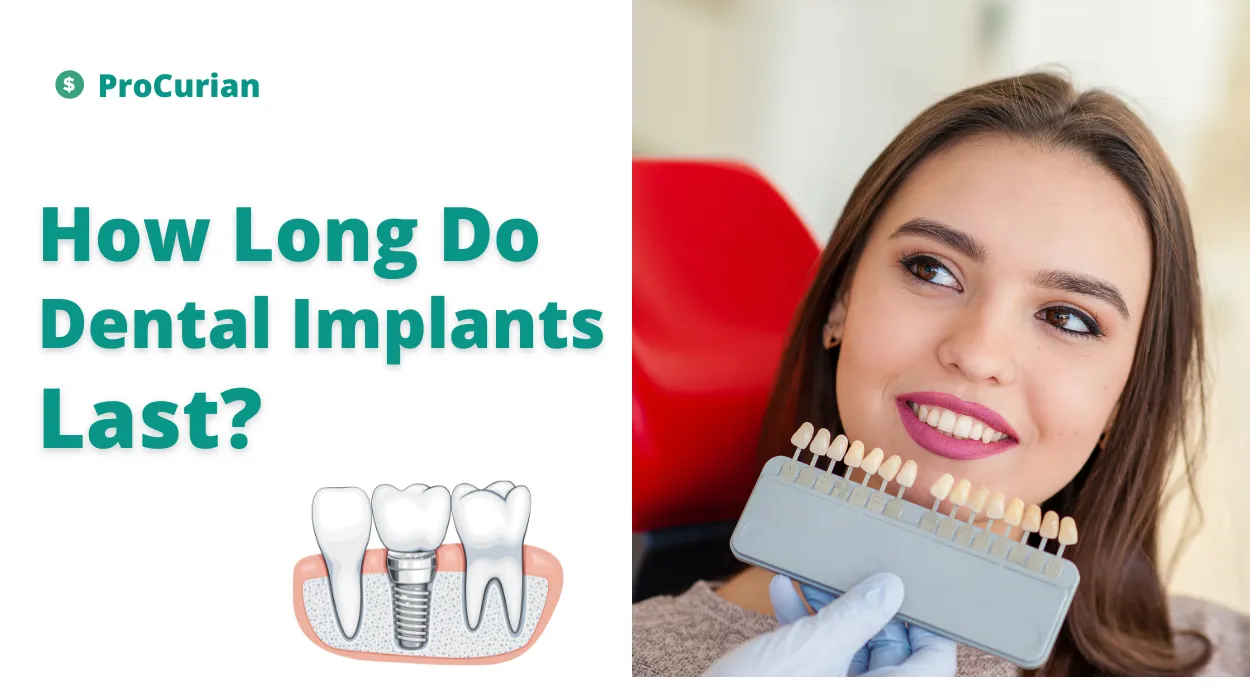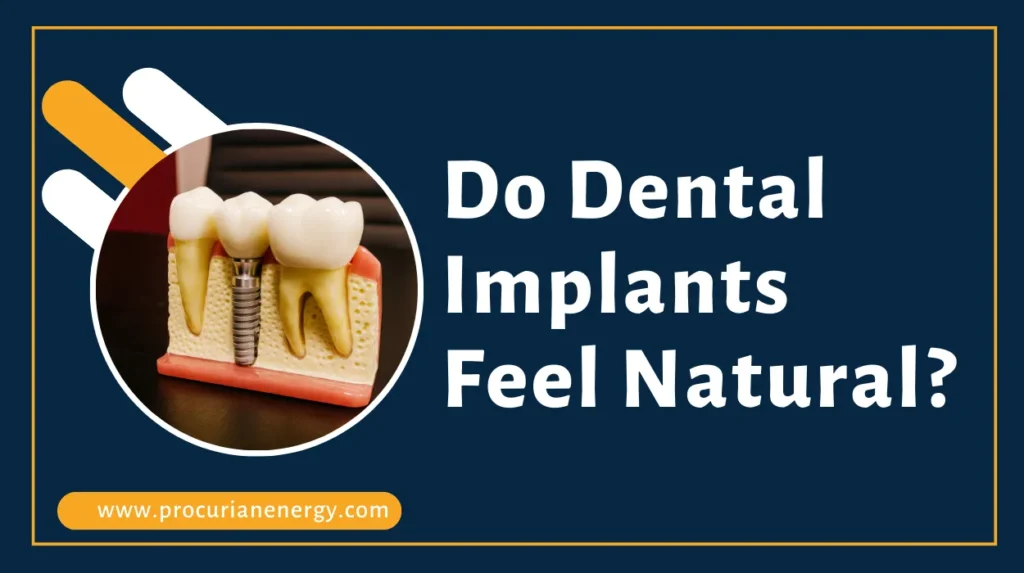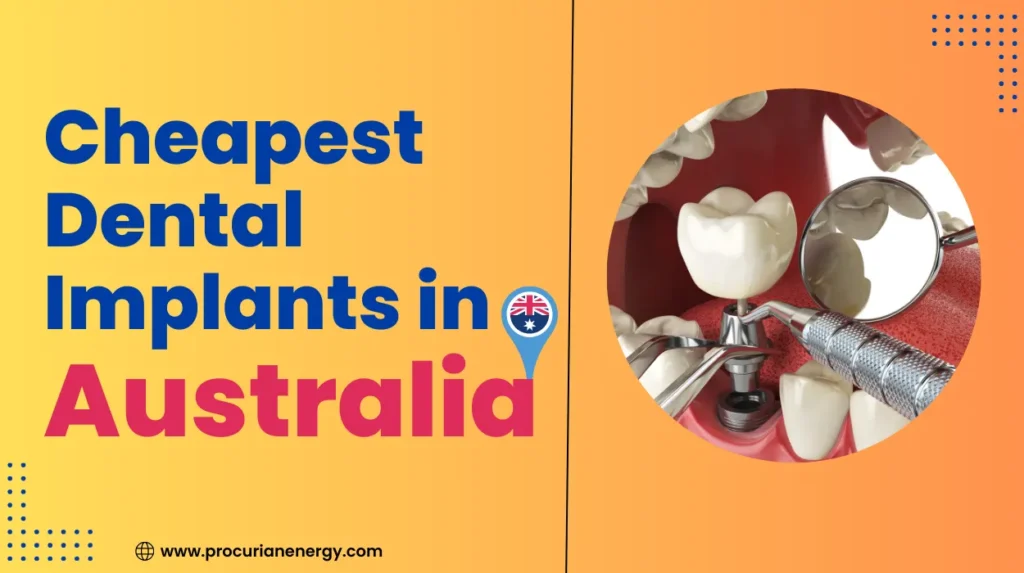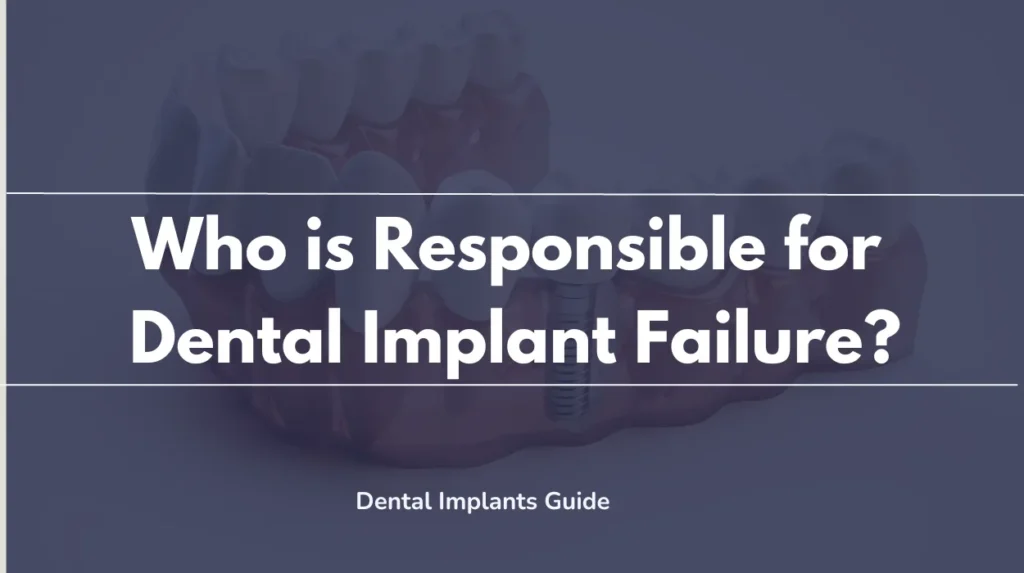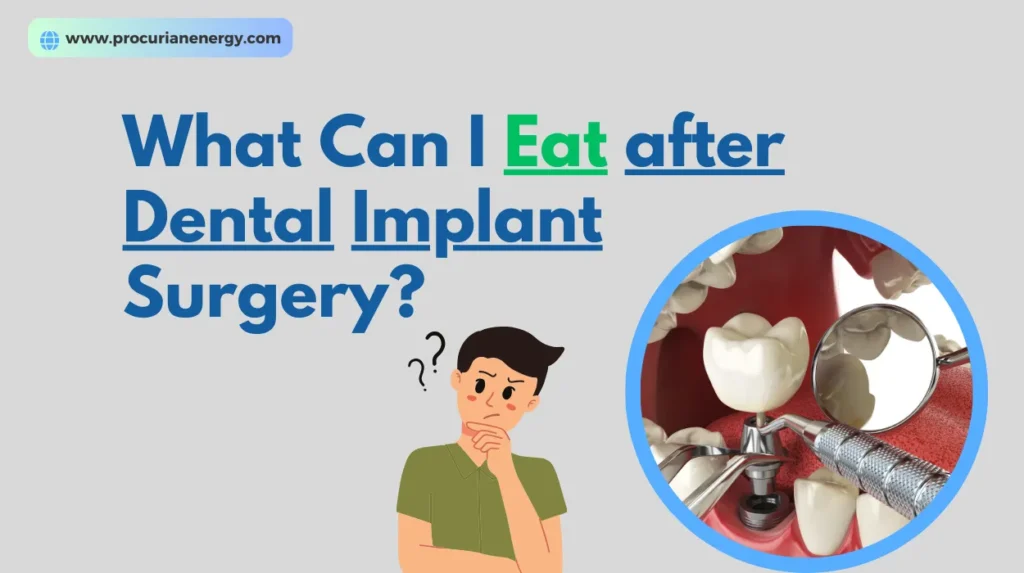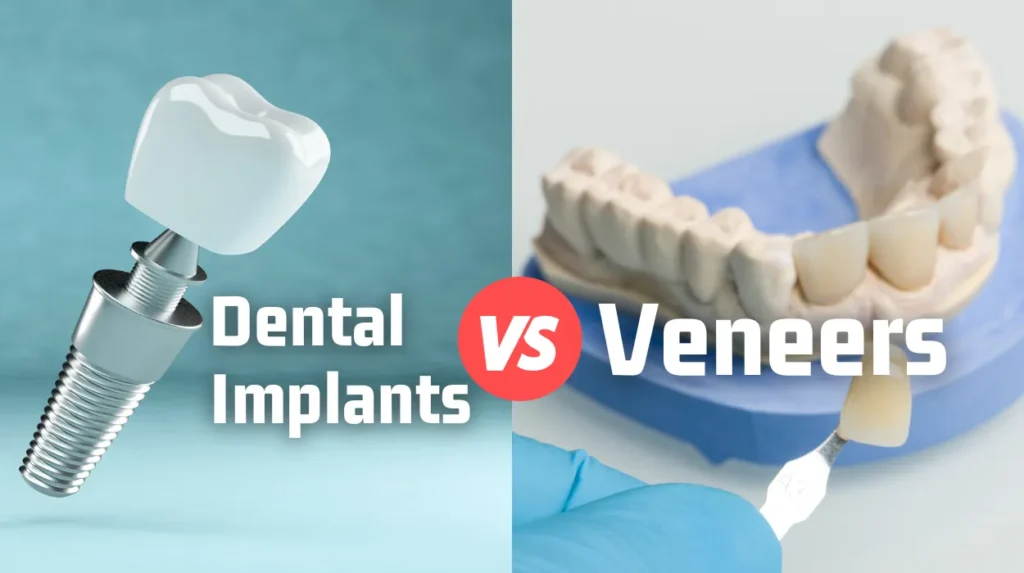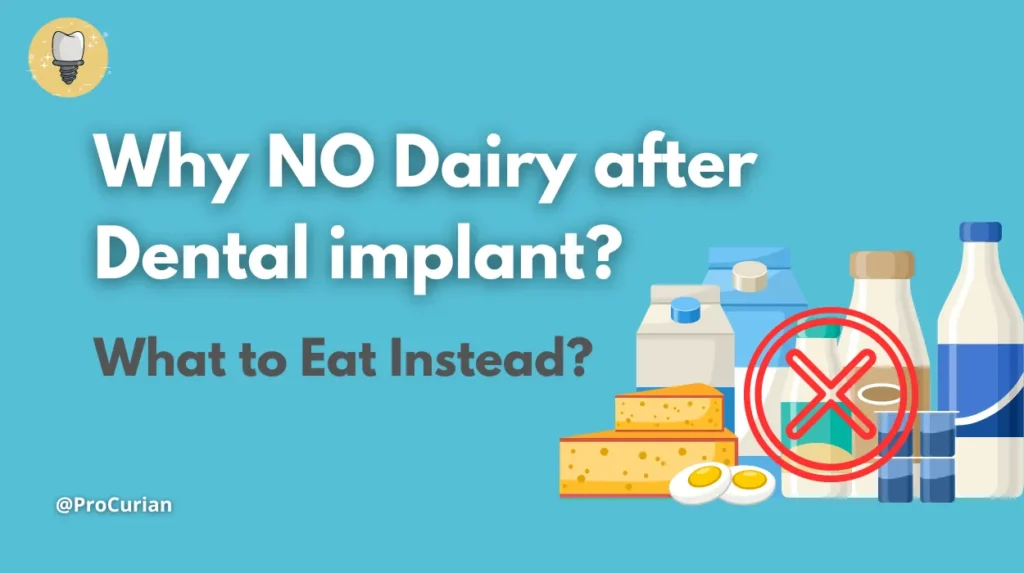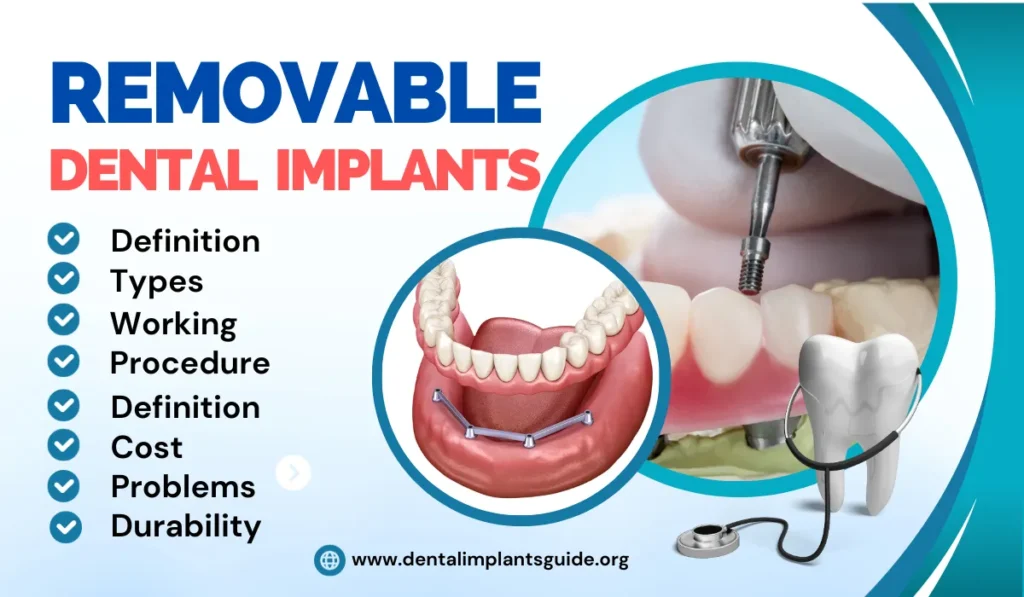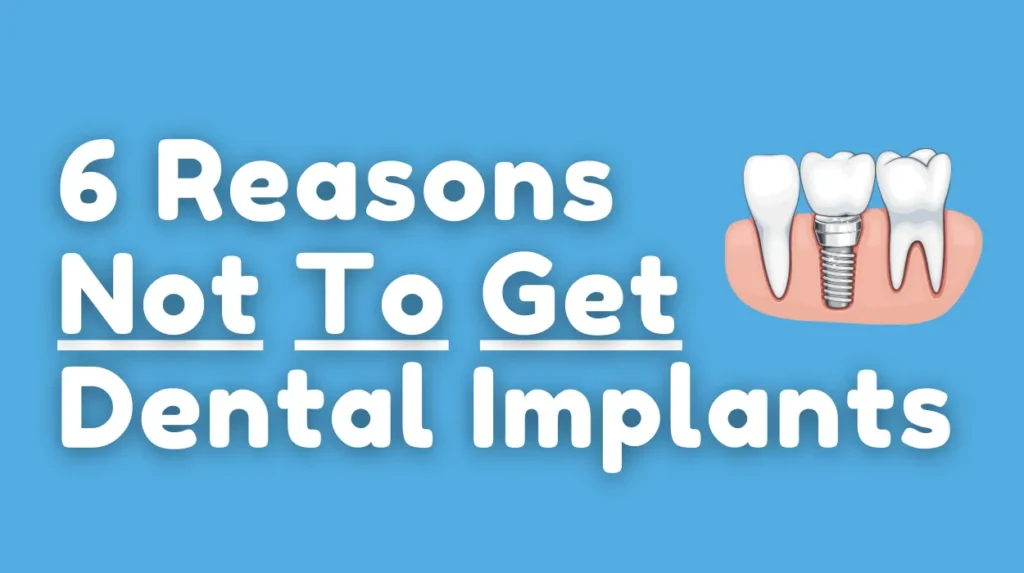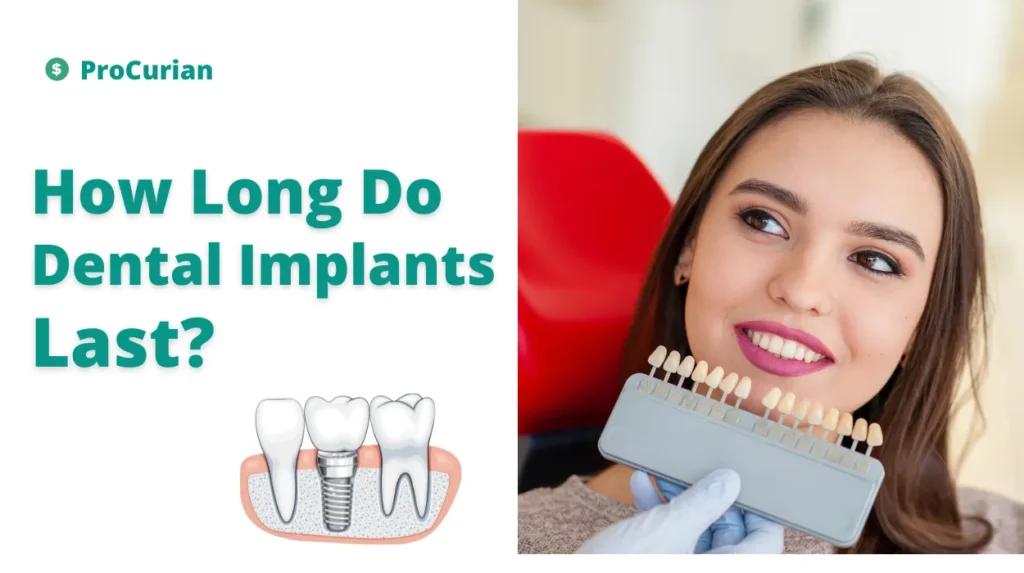
Dental implant is the best way to fix your smile and replace missing teeth.
But if you’re considering getting dental implants, you might be wondering how long they will last. In this article, we have covered everything you need to know about how long do Dental Implants last.
Dental implants are like super-strong, natural-looking replacement teeth. They’re made of two parts:
- The Implant – This is a tiny titanium screw that goes into your jawbone.
- The Crown – This is the part that looks like your real tooth and sits on top of the implant.
The combination of these two parts creates a brand new tooth that works and feels just like the real deal. The cost of dental implants can vary, but they’re usually a bit pricey. Most dental insurance may help with some costs, but not always the full amount.
How Long Do Dental Implants Last?
On average, dental implants have a success rate of around 90%. This means that 90 out of 100 implants are still functional after five years.
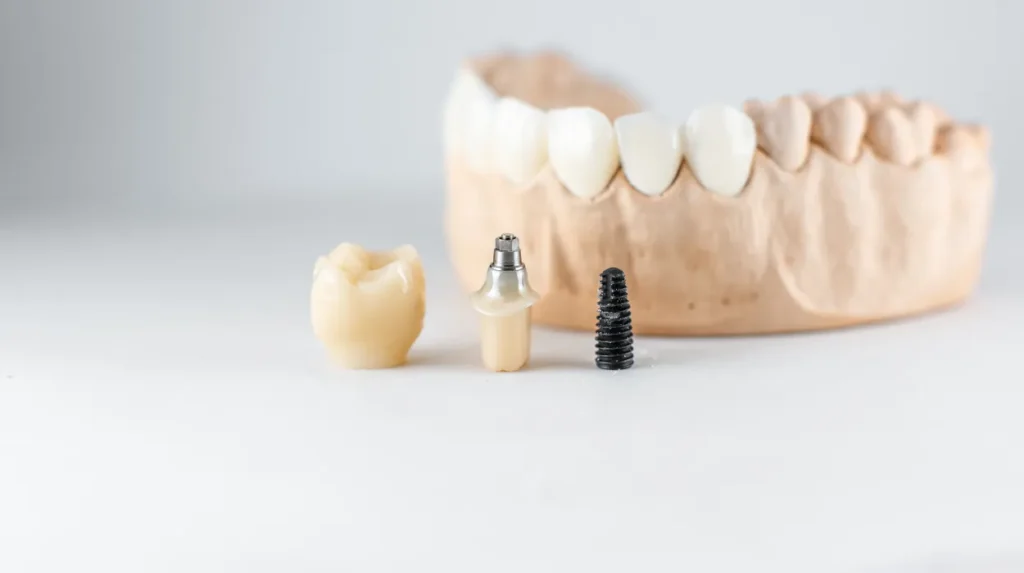
However, many implants last far longer, often for decades or even a lifetime. The key to their longevity lies in proper care and maintenance.
Here’s a rough breakdown of what you can expect:
- Short-term Success (0-5 years) – This is the initial phase where your implant should integrate with the bone. Most implants remain stable during this period.
- Medium-term Success (5-10 years) – With good oral care, your implant should continue to function well during this period.
- Long-term Success (10+ years) – Dental implants that make it past the 10-year mark often last a lifetime with regular check-ups and proper care.
Dental Implant Longevity by Type
Different types of dental implants have slightly different lifespans. Here’s a breakdown:
| Type of Dental Implant | Average Lifespan |
|---|---|
| Endosteal Implants | 20+ years |
| Subperiosteal Implants | 10-15 years |
| All-on-4 Implants | 10-20 years |
| Zygoma Implants | 20+ years |
| Mini Implants | 5-10 years |
Endosteal Implants – These are the most common type of dental implants. They’re placed directly into the jawbone. With proper care, they can last 20 years or more.
Subperiosteal Implants – These implants sit on top of the jawbone but underneath the gum tissue. They have a slightly shorter lifespan compared to endosteal implants.
All-on-4 Implants – These are a bit different. They support a full arch of teeth with just four implants. They can last a good while but may require maintenance.
Zygoma Implants – These implants are a specialized type of dental implant used in cases where patients have severe bone loss in the upper jaw. These implants are anchored to the cheekbone (zygomatic bone) instead of the jawbone.
Mini Implants – These are smaller in diameter than traditional implants. They are often used for specific purposes, such as securing lower dentures.
When Do Dental Implants Fail?
While dental implants are designed to be long-lasting, there is a small chance they can fail. Here are some signs that your implant may be in trouble:
- Pain or discomfort – Persistent pain around the implant site could be a sign of trouble.
- Loose or wobbly implant – If your implant feels unstable, it’s essential to see your dentist.
- Swelling or infection – Redness, swelling, or signs of infection around the implant are concerning.
- Gum recession – If your gums start to pull away from the implant, it needs attention.
Tips to Make Your Dental Implants Last Longer
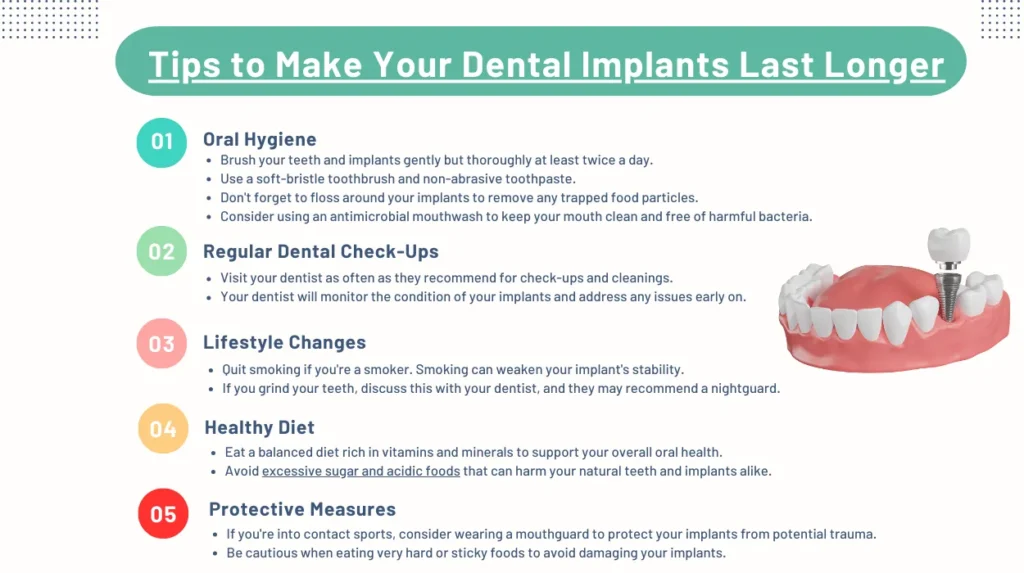
Now that you know the factors affecting dental implant longevity, here are some tips to ensure your implants stick around for a good, long time:
1. Oral Hygiene
- Brush your teeth and implants gently but thoroughly at least twice a day.
- Use a soft-bristle toothbrush and non-abrasive toothpaste.
- Don’t forget to floss around your implants to remove any trapped food particles.
- Consider using an antimicrobial mouthwash to keep your mouth clean and free of harmful bacteria.
2. Regular Dental Check-Ups
- Visit your dentist as often as they recommend for check-ups and cleanings.
- Your dentist will monitor the condition of your implants and address any issues early on.
3. Lifestyle Changes
- Quit smoking if you’re a smoker. Smoking can weaken your implant’s stability.
- If you grind your teeth, discuss this with your dentist, and they may recommend a nightguard.
4. Healthy Diet
- Eat a balanced diet rich in vitamins and minerals to support your overall oral health.
- Avoid excessive sugar and acidic foods that can harm your natural teeth and implants alike.
5. Protective Measures
- If you’re into contact sports, consider wearing a mouthguard to protect your implants from potential trauma.
- Be cautious when eating very hard or sticky foods to avoid damaging your implants.
How long do dental implants take to heal?
Dental implant healing time varies, but here’s a simple breakdown:
- Initial Healing – About 2-6 weeks. Your gums need time to close up around the implant.
- Osseointegration – This is when the implant bonds with your jawbone. It takes 3-6 months.
- Final Healing – Another 2-4 weeks. Your dentist will make sure everything’s good before putting on the crown.
How long do full mouth dental implants last?
Full mouth dental implants can last a really long time which is about 10-15 years. With good care and regular check-ups, they can stay strong and keep your smile bright for many years.
How often do implants need to be replaced teeth?
On average, this happens every 20 years or so. So, you don’t need to worry about replacing them too often. Just remember to keep up with your oral hygiene and check in with your dentist regularly to make sure everything’s A-OK!
What happens when dental implants wear out?
When dental implants wear out, it’s like an old pair of shoes – they start to get loose or wobbly. You might feel discomfort, and your smile might not look as good as before.
But don’t worry! Your dentist can help. They’ll check your implants and decide if they need fixing or replacing.
FAQs:
How long do dental implants last?
Dental implants can last a lifetime if you take good care of them and maintain good oral hygiene.
Do dental implants ever need to be replaced?
In most cases, dental implants don’t need replacement if you care for them, but sometimes, they might need adjustments or repairs.
Can smoking affect the lifespan of dental implants?
Yes, smoking can shorten the lifespan of dental implants. It’s best to quit smoking for better implant health.
Is there a chance of dental implants falling out?
Dental implants are firmly anchored and don’t fall out like dentures. They are quite secure if properly placed.
Are there any foods I should avoid with dental implants?
Avoid very hard or sticky foods that could damage your implants. Stick to a balanced diet for better oral health.
How often should I visit the dentist after getting dental implants?
Regular dental check-ups every six months are crucial to ensure your implants stay healthy.
Can dental implants get cavities?
No, dental implants can’t get cavities. However, the surrounding natural teeth and gums still need protection.
Can dental implants break or chip?
Dental implants are made to be strong, but accidents can happen. It’s rare, but they can break or chip.
Is it painful to get dental implants?
You may experience some discomfort during and after the procedure, but it’s usually manageable with pain medication.
What should I do if I suspect a problem with my dental implant?
If you have any concerns or notice issues with your implant, contact your dentist immediately for a check-up and advice.
Final Words
Dental implants are a dependable and durable tooth replacement option.
You can maintain a stunning and useful smile for many years to come by taking good care of your implants and watching out for any warning signs of trouble.
Don’t forget to follow your dentist’s advice and schedule regular checkups to guarantee the best results for your dental implants.
To make a well-informed decision about your oral health and smile restoration if you’re thinking about getting dental implants, talk to a qualified dental professional about your options and expectations.
